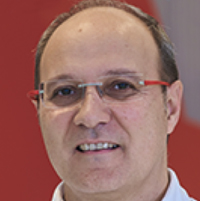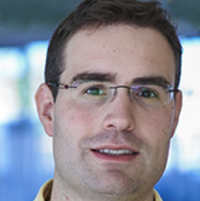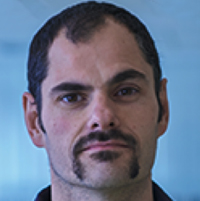Materials (2020)
Diagrama de temas
-

Teaching Faculty
José Antonio Casado del Prado
Borja Arroyo Martínez
Diego Ferreño BlancoDepartment of Science And Engineering of Land and Materials
The course aims to transmit the knowledge to relate the processing techniques, the structure, and the properties with the behavior of the materials commonly used in industrial applications. After the definition, analysis and evaluation of the physical-mechanical properties of the materials, the basic techniques of their production, shaping and transformation are revealed.
Keywords
Materials Science, Materials Technology, Structure-Properties-Forming.
-

Course Information
-
Course: Materials
-
Code: G1901
-
Department / Unit: Department of Terrain and Materials Science and Engineering
-
Degree: Mechanical Engineering
-
Faculty: Escuela Técnica Superior de Ingenieros de Caminos, Canales y Puertos
-
ECTS credits: 6
-
Language of instruction: English
-
Instructors: José Antonio Casado del Prado, Borja Arroyo Martínez & Diego Ferreño Blanco
Course estructure
Unit I. Fundamentals of materials science
- Topic 1. Introduction to materials. Description, composition, properties and applications.
- Topic 2. Hooke´s law. Analysis of physical properties.
- Topic 3. Crystalline and amorphous structure. Structure and behavior.
- Topic 4. Tensile strength and hardness.
- Topic 5. Fast fracture and toughness.
- Topic 6. Fatigue failure.
- Topic 7. Creep.
-
Topic 8. Oxidation and corrosion.
Unit II. Fundamentals of materials technology
- Topic 9. Phase diagrams.
- Topic 10. Iron alloys.
- Topic 11. Other metal alloys.
- Topic 12. Treatments.
- Topic 13. Production and conformation of metals. Processes for the production of pieces.
- Topic 14. Ceramics and glasses.
- Topic 15. Polymers.
- Topic 16. Composite materials.
- Topic 17. Mortars and concrete.
- Topic 18. Materials selection.
-
-

Required reading list
-
Ashby & Jones (2012): «Engineering materials I. An introduction to properties, applications and design». Fourth Edition. Elsevier.
-
Ashby & Jones (2006): «Engineering materials II. An introduction to microstructures, processing and design». Third Edition. Elsevier.
-
Askeland (2010): «The science and engineering of materials». Sixth Edition. Cengage Learning.
-
Flinn & Trojan (1995): «Engineering materials and their applications». Fourth Edition. John Wiley & Sons (WIE).
-
Callister: «Materials science and engineering. An introduction». John Wiley & Sons.
-
-

Unit I. Fundamentals of materials science
- MC-F-001. Topic 0. Presentation.
- MC-F-002. Topic 1. Introduction to materials.
- MC-F-003. Topic 2. Hooke´s Law.
- MC-F-004. Topic 3. Crystalline and amorphous structure.
- MC-F-005. Topic 4. Tensile strength.
- MC-F-006. Topic 5. Other mechanical test.
- MC-F-007. Topic 6. Fast fracture, brittle fracture and toughness.
- MC-F-008. Topic 7. Fatigue failure.
- MC-F-009. Topic 8. Creep and relaxation.
-
MC-F-010. Topic 9. Oxidation and corrosion.
Unit II. Fundamentals of materials technology
-
MC-F-011. Topic 10. Phase diagrams.
-

- MC-F-001. Exercises Topic 2. Hoke's Law.
- MC-F-002. Exercises Topic 3. Crystalline structure.
- MC-F-003. Exercises Topic 4. Tensile strenght.
- MC-F-004. Exercises Topic 6. Fracture.
- MC-F-005. Exercises Topic 7. Fatigue.
- MC-F-006. Exercises Topic 8. Creep.
- MC-F-007. Exercises Topic 9. Oxidation.
- MC-F-008. Exercises Topic 9. Corrosion.
- MC-F-009. Exercises Topic 10. Phase diagrams.
- MC-F-010. Exercises Topic 10. Iron-Carbon phase diagram.
-

Topic 2. Hooke´s Law
-
. Defor 3 (video).
-
. Fatiga 1 (video).
-
. Impacto 1 (video).
-
OR-F-004. Lecture 26. Elasticity and Young's Modulus | 8.01 Classical Mechanics, Fall 1999 (Walter Lewin) (video).
-
. Hooke's Law and Young's Modulus - A Level Physics (video).
-
. Lecture 02. Atomic Structure and Bonding (video).
-
. Lecture 24. Elastic Behaviour (video).
-
. Mechanical Properties of Materials and the Stress Strain Curve - Tensile Testing (2/2) (video).
-
. Tensile Test (video).
-
. Lecture 25. Tensile Test (video).
Topic 3. Crystalline and amorphous structure
-
. Átomo 8 Comp (video).
-
. Átomos Medianos (video).
-
. Corto Alcance Total (video).
-
. Cúbica Caras (video).
-
. Cúbica Centrada Caras (video).
-
. Cúbica Centrada Cuerpo (video).
-
. Cúbica Centro (video).
-
. Cúbica Simple GDE (video).
-
. Cúbica Simple (video).
-
. Grey Tin (Tin Pest) (video).
-
. Hexagonal (video).
-
. M5x5 (video).
-
. Monoclínica Centrada Bases (video).
-
. Monoclínica Simple (video).
-
. Ortorrómbica Centrada Bases (video).
-
. Ortorrómbica Centrada Caras (video).
-
. Ortorrómbica Centrada Cuerpo (video).
-
. Ortorrómbica Simple (video).
-
. Romboédrica Simple (video).
-
. Sin Orden (video).
-
. Tetragonal Centrada Cuerpo (video).
-
. Tetragonal Simple (video).
-
. Triclínica Simple (video).
Topic 4. Tensile strength
-
. Necking (video).
-
. Tensile Test Stainless Steel Specimen (video).
Topic 5. Other mechanical test
-
. Hammer (video).
-
. Rockwell B (video).
-
. Rockwell C (video).
Topic 6. Fast fracture, brittle fracture and toughness
-
. Impacto (video).
-
. Probeta 1 (video).
-
. Probeta 2 (video).
-
. Produce 1 (video).
-
. Lecture 33. Fracture: Part 1 (video).
-
. Lecture 33. Fracture: Part 2 (video).
-
. Fracture Test (SENB) (video).
Topic 7. Fatigue failure
-
. Ensayo Fatiga Mordazas M2 (video).
-
. LADICIM 280711 (video).
-
. Lecture 35. Fatigue (video).
-
. Charpy Impact Test (video).
-
. 613 Composite SENB Test Fractura (video).
Topic 8. Creep and relaxation
-
. Determining Progressive Creep Strain for a Material Using Creep Testing (video).
-
. Lecture 36. Creep (video).
-
. AMIE Exam Lectures. Materials Science & Engineering | Mechanical Properties - Creep Behaviour | 6.5 (video).
Topic 9. Oxidation and corrosion
-
. Environmentally Assisted Cracking - STC Workshop 2019 (video).
-
. What Is Stress Corrosion? Stress Corrosion Cracking / Stress Cracking: Electrochemical Corrosion (video).
-
. Stress Corrosion of High Strength Steel (video).
-
. Impressed Current Cathodic Protection (video).
-
-

Assessment criteria
Assessment criteria
ASSESSMENT METHODS AND CRITERIA "MATERIALS"
Description
Typology
Final assessment
Reassessment
%
Unit I assessment
Written exam
No
Yes
40%
-
Minimum mark: 5,00.
-
Duration: 3 hours.
-
Date:
-
Retake conditions: September exam.
-
Comments:
-
Evaluation of Theoretical Contents and Exercises.
-
The minimum grade to compensate Theory or Exercises will be 2,50 in either of the two parts.
-
The minimum grade to compensate Unit I with Unit II will be 3,50.
-
Unit II assessment
Written exam
No
Yes
40%
-
Minimum mark: 5,00.
-
Duration: 3 hours.
-
Date: The one that indicates the Exam Calendar.
-
Retake conditions: September exam
-
Comments:
-
Evaluation of Theoretical Contents and Exercises.
-
The minimum Grade to compensate Theory or Exercises will be 2,50 in either of the two parts.
-
The minimum Grade to compensate Unit I with Unit II will be 3,50.
-
Continuos assessment
Others
No
No
20%
-
Minimum mark: 0,00.
-
Duration:
-
Date: For the First Quarter.
-
Retake conditions:
-
Observaciones: Laboratory Practices, periodic Tests, delivery of solved Problems, delivery and oral Presentation (not read) of Works and Complementary Activities
TOTAL
100%
COMMENTS:
-
The Final Grade of the subject will be obtained by means of the following formula:
-
0,4 (Grade Unit I) + 0,4 (Grade Unit II) + Continuous Evaluation Grade (maximum 2 points).
- The Grade of the Continuous Evaluation will be saved for the September Call for all those students who do not pass the Subject in the February Call. Neither of the two Units will be saved for later courses.
-
Part-time students COMMENTS:
-
In general, the Evaluation of part-time students will be based on what is established for this purpose in the Evaluation Regulations of the University of Cantabria. In any case, the unique circumstances of each student who is in this situation will be assessed individually.
-
-
-


José Antonio Casado del Prado
Department of Science And Engineering of Land and Materials
UNIVERSIDAD DE CANTABRIA
More information
Borja Arroyo Martínez
Department of Science And Engineering of Land and Materials
UNIVERSIDAD DE CANTABRIA
More information
Diego Ferreño Blanco
Department of Science And Engineering of Land and Materials
UNIVERSIDAD DE CANTABRIA
More information
